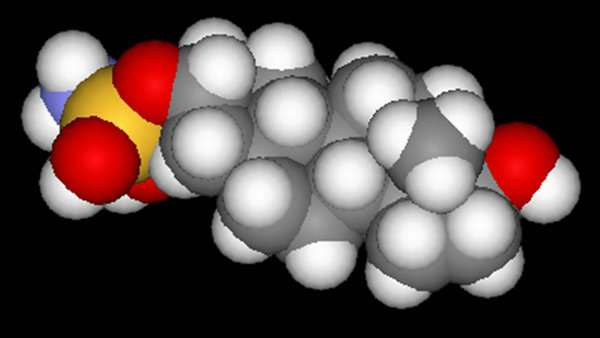The study entitled ‘Synergistic Effects of E2MATE and Norethindrone Acetate on Steroid Sulfatase Inhibition: A Randomized Phase I Proof-of-Principle Clinical Study in Women of Reproductive Age’ appeared in the journal Reproductive Sciences earlier this year.
Endometriosis is a benign disease which leads to chronic pelvic pain and infertility. With an estimated 80 million sufferers worldwide, the disease is still poorly understood. The discovery of new drugs is critical as most treatments have unpleasant side effects and current therapies have proved inadequate.
E2MATE, also known as PGL2001, was first designed and chemically synthesised in the Medicinal Chemistry Group of our Department of Pharmacy & Pharmacology.
The scientific basis for these trials was founded on a paper published in 2008 by teams at the University and Imperial College, London on Irosustat – another drug originating from the University. The paper showed that the drug, which has reached widespread Phase II cancer trials, has potential for the treatment of endometriosis.
Commenting on the developments Professor Potter, who was the lead on both the E2MATE and Irosustat projects, said: “The most rewarding thing for any Drug Discovery Group is to see a drug we have designed in the lab overcome the multitude of very difficult hurdles and finally be administered to humans.
“Only the tiniest fraction of all such development candidates ever makes it this far, even in the pharma industry, as they require multidisciplinary teamwork and a multi-million pound budget. I am very encouraged that both our underpinning scientific concepts and the actual drug itself could translate into clinical benefit for a real unmet need”.
For full details of the E2MATE trial read the paper at Reproductive Sciences.
The trial was carried out by the Swiss company Preglem, that earlier acquired rights to several Bath-designed drugs.
E2MATE and its associated intellectual property formed part of the assets of the Bath-Imperial College spin-out company Sterix Ltd which was co-founded by Professor Barry Potter and acquired by Ipsen in 2004.

